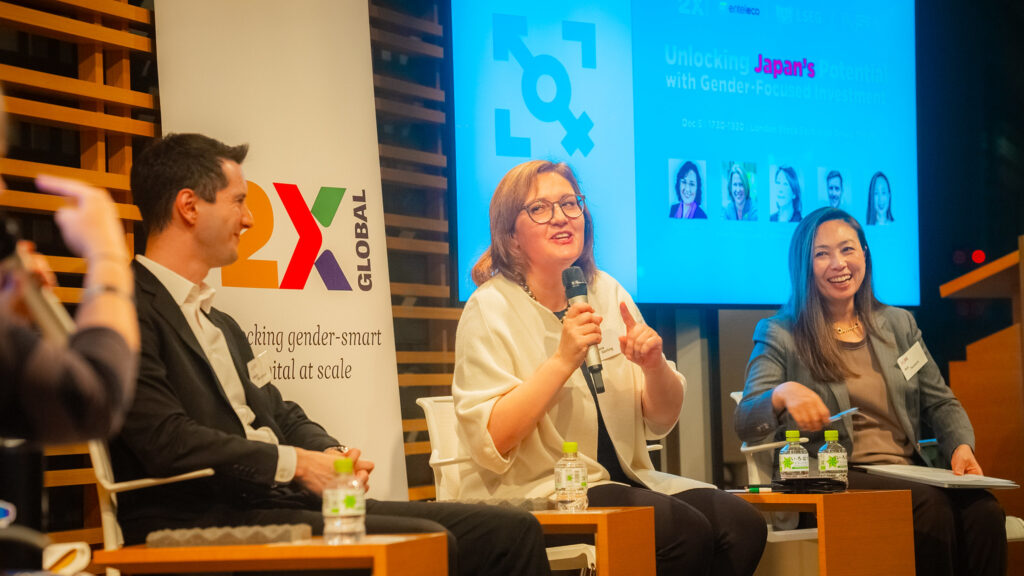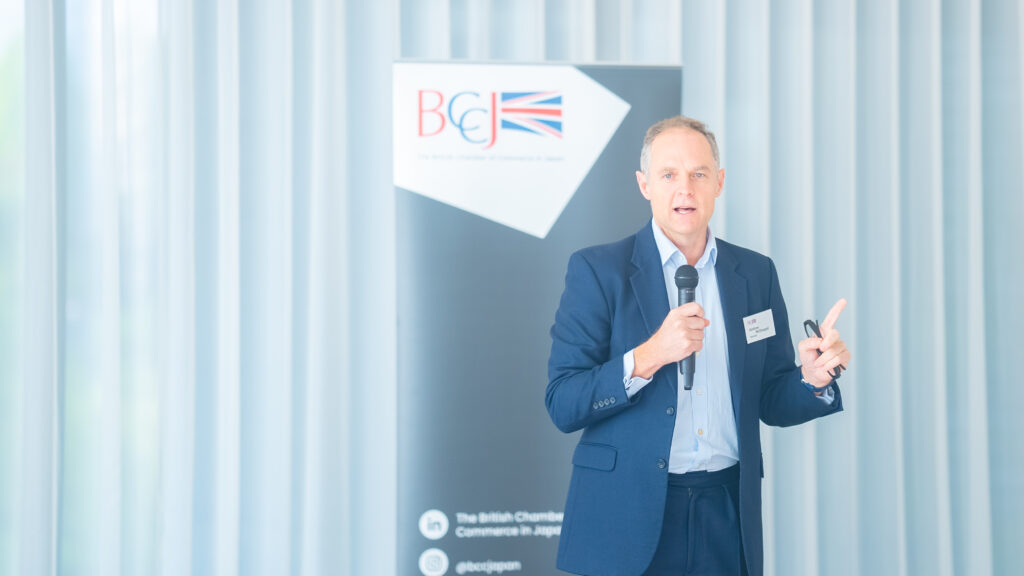Member? Please login
Navigating Japan’s Tech Future with Quantum Computing 101

Written by Sterling Content
October 18, 2024
Past Event Round Ups
As quantum computing begins to influence key industries in Japan, poised to revolutionise sectors such as healthcare, finance and materials science, the British Chamber of Commerce in Japan introduced Quantum Computing 101 to members and friends, including members of the Belgian-Luxembourg Chamber of Commerce in Japan and Canadian Chamber of Commerce in Japan.
Panellists Dr Todd Tilma, senior quantum engineer at Oxford Quantum Circuits Japan, and Tony Ford, fellow at Oxford Instruments Japan, discussed Japan’s quantum computing landscape, fundamental concepts, potential applications and the initiatives being undertaken by both the government and the private sector in this field, with moderation by Andrijana Cvetkovikj, president & CEO of BrioNexus Co.
Facilitating quantum
Ford opened the session by explaining the ultra-low-temperature environment necessary to enable quantum computing. Absolute zero (equivalent to -273.15˚C), he said, is the lowest temperature that can be achieved by any method or using any material. When physical materials are placed in such low temperatures, their molecular motion tends to seize, making it possible for their fundamental properties to be studied. Scientists have therefore long been interested in working in these cold temperatures.
In the 1960s, Oxford Instruments invented the first commercial dilution refrigerator capable of achieving temperatures of a few thousands of a degree above absolute zero, an environment that is “one of the coldest places in the universe,” he continued.
In another breakthrough, 10–15 years ago, Professor Peter Leek of the University of Oxford invented a way of fixing qubits, the basic units of information in quantum computing, onto these refrigerators, thereby making the control of qubits possible—a breakthrough in quantum computing. With this technology, he founded Oxford Quantum Circuits (OQC).
Recently, OQC obtained regulatory approval to install these refrigeration systems into data centres, including in the Equinix data centres in Tokyo. Now, these systems are available for customers wishing to solve very complex problems using quantum, Ford explained.
Potential of quantum
Describing quantum as technology that can be used “to transform the world,” Tilma said OQC has developed from having £2 million in seed funding and an eight-qubit machine in 2017 to having a 32-qubit machine using proprietary sapphire today (Sapphire substrates could lead to significant improvements in the performance of superconducting qubits, according to research.).
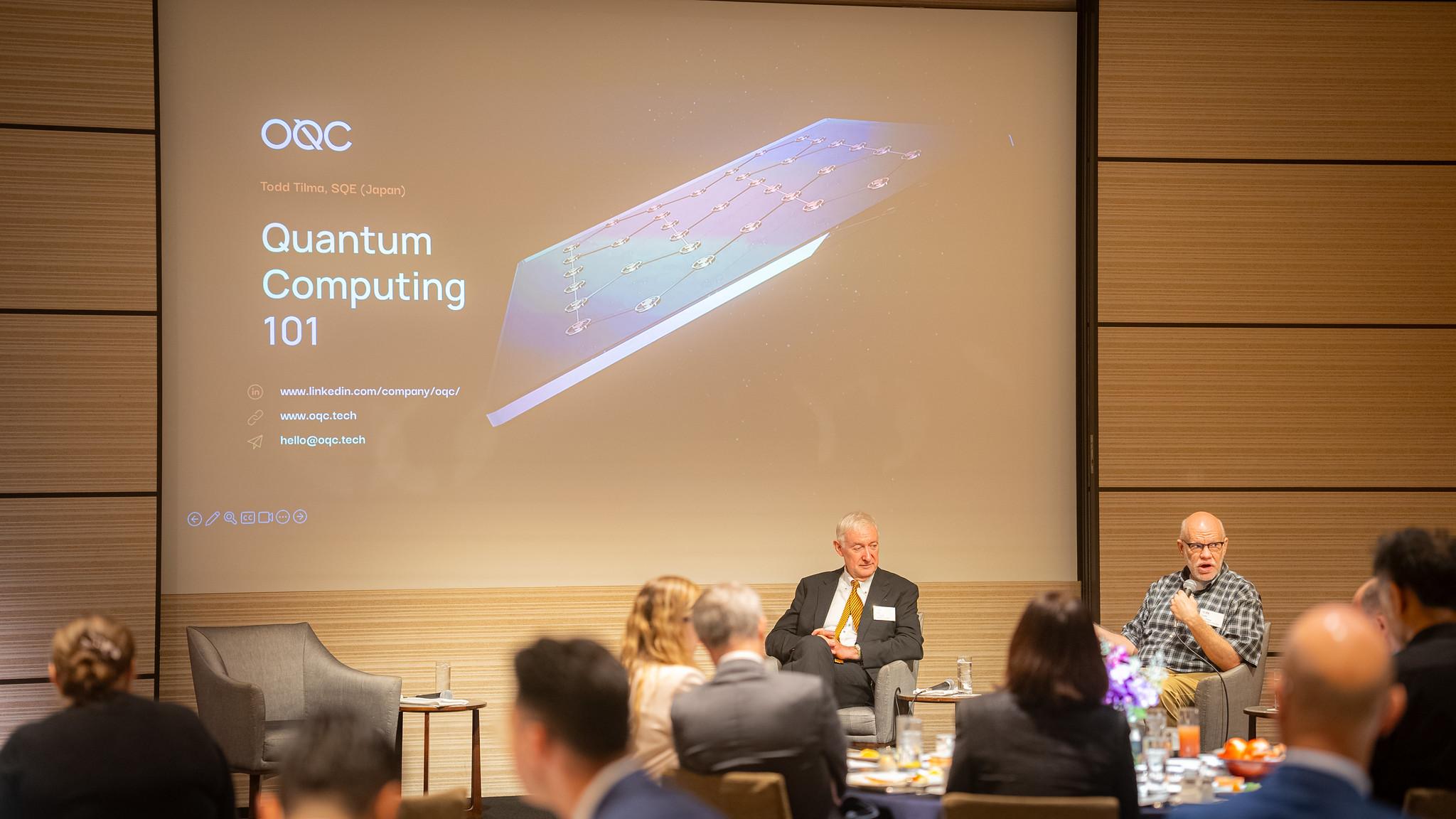
OQC operates by manipulating qubits, he explained: “A qubit is the quantum analogue of classical computing’s bit. It is the fundamental building block of a quantum computer. Just as classical computers perform calculations by manipulating bits between the 0 and 1 states, we manipulate qubits to perform calculations on a quantum computer.”
There are many types of qubits, each with their own properties and ideal operating environments. OQC specialises in superconducting circuits, but there are also trapped ions, neutral atoms, silicon spins and photonics.
OQC’s core technology, the Coaxmon, has a three-dimensional architecture that brings key componentry off-chip to increase flexibility and scalability, making it potentially the most promising superconducting qubit available today. And the company’s Toshiko Gen1 is the world’s first enterprise-ready platform, which can offer quantum computing as a service.
Business uses
The quantum computing industry is expected to be worth US$28–72 billion by 2035 according to an April 2024 report by McKinsey & Company, noted speaker and moderator Cvetkovikj. She said: “Japan is emerging as a key player in the quantum race, with significant investment from companies like Toshiba, Fujitsu, NEC and others. These firms are exploring quantum applications ranging from cryptography to material and life science.
“However, while the government and large corporations are investing in R&D, there is still a need for greater awareness and engagement from the broader business and investor community to fully grasp the long-term implications of quantum technologies,” she added, before asking the panellists to consider business applications for quantum.
Ford noted that quantum computers have the ability to solve very complex problems that classical computers simply cannot, such as how drugs work in the body or how to manage logistics. Companies in industries as varied as pharmaceuticals and supply chains are using quantum to optimise their data and automate their processes.
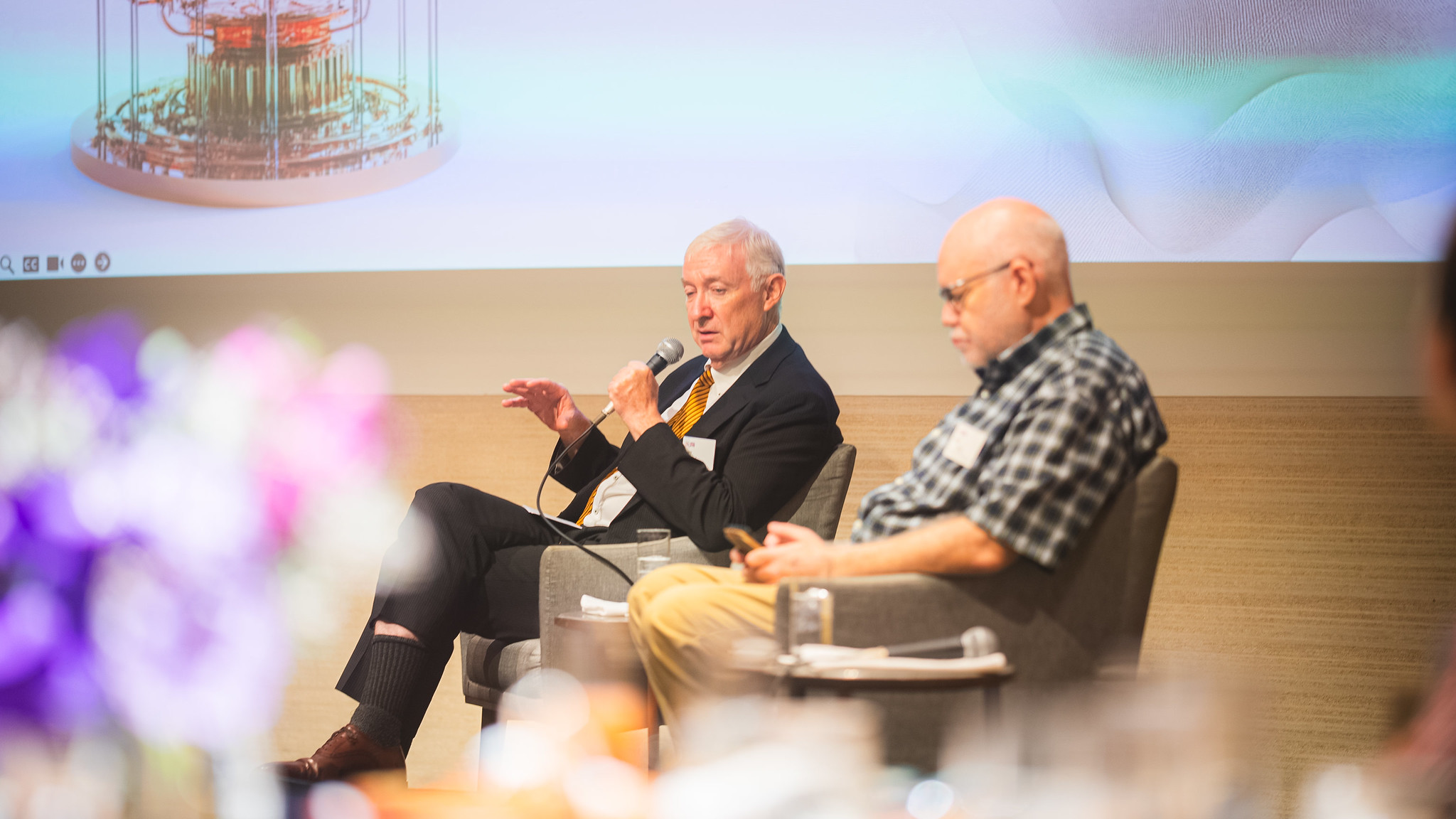
And other possibilities abound, he continued. In materials science, for example, car tyre erosion—which has long suffered the impact of crude modelling due to the many variables involved—could be better understood with the use of quantum computing.
“People believe we have received quantum advantage, where a quantum computer can solve a real-world problem, better, quicker, with less errors or using less energy than a conventional computer,” he said.
But there are other levels that have not been reached. Quantum superiority, for example, is when a quantum computer can solve a contrived problem better than a conventional computer, while quantum utility is when a quantum computer can solve a real-world problem that a conventional computer cannot, he explained.
“We’re seeing what we expected with a new technology coming in and disrupting older technologies. We’re currently at a small stage, [with applications] in material science and logistics,” shared Tilma. “But the thing about quantum is that it’s not an evolutionary technology, it’s a transformative technology. Look at the technologies it enables.”
He pointed out that the industry has the potential of generating US$ 1.3 trillion globally within the next 10–15 years.
Possible collaborations
Cvetkovikj asked about the potential of partnerships, noting that her company BrioNexus brought together stakeholders from government, industry and academia to facilitate United States-based startup Infleqtion’s selection by Japan’s Science and Technology Agency as the first and only foreign corporate quantum computing partner in Japan’s Quantum Moonshot programme. “This notable achievement was even included as a talking point during former Prime Minister Kishida’s meeting at the White House with President Joe Biden,” she said.
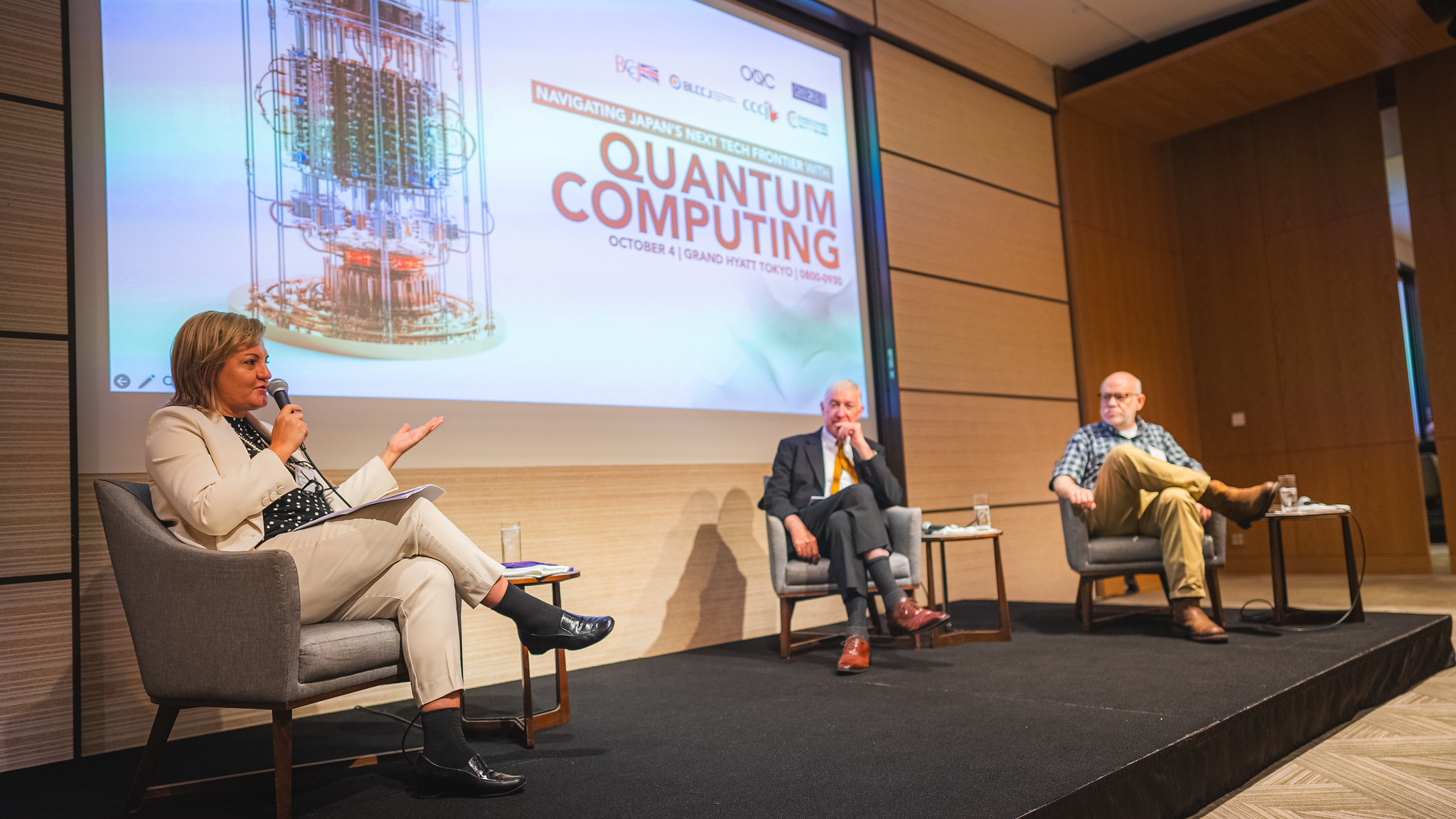
Thanks to significant alignment on quantum, there are a number of bilateral initiatives between the UK and Japan, which typically involve programmes initially supported by government funding. Later, those programmes often seek private investment to continue in the longer term, shared Ford.
Ultimately, though, for quantum technology to develop effectively, “we have to facilitate the environment, from labs to startups,” said Tilma. “That’s hard to do because quantum is something you didn’t realise you needed until you have it. In the end, the ability to get the seeds of quantum started requires businesses to be open-minded and take risks that they don’t even know about.”

